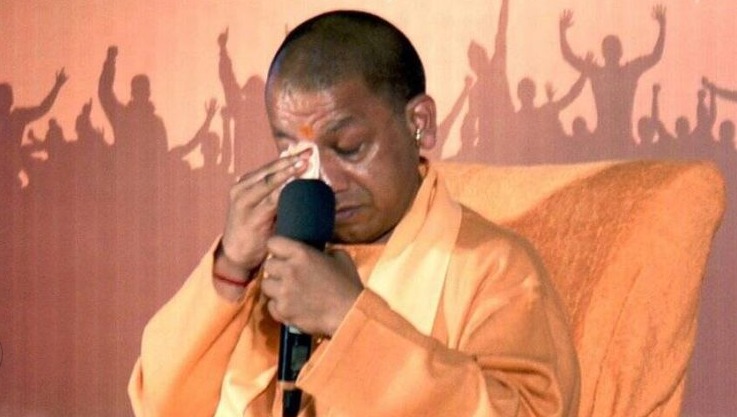In a surprising turn of events, despite the Bharatiya Janata Party (BJP) securing 62 out of 80 seats in the 2019 Lok Sabha elections in Uttar Pradesh, their tally plummeted to just 33 seats in the subsequent elections. This drastic loss of 29 seats, despite numerous developmental initiatives and significant efforts invested in the state, underscores the volatile nature of electoral politics and highlights the shifting sentiments of the electorate, leaving BJP grappling with a diminished mandate despite their prior dominance.
In the heartlands of Uttar Pradesh lies a tale of betrayal and ingratitude, one that echoes the sentiments of disillusionment and unmet expectations. At the center of this narrative stands Chief Minister Yogi Adityanath, a figure once hailed as the harbinger of change, only to be forsaken by those he served diligently.
In the village of Rampur, a symbol of communal harmony emerged when the Adityanath government allocated 532 homes to Muslim families, a gesture aimed at fostering unity and inclusivity. Yet, despite this magnanimous act, the support Yogi Adityanath anticipated from the villagers remained elusive. Instead of gratitude, there lingered a palpable sense of indifference, even animosity, towards the very leader who sought their welfare.
Yogi Adityanath’s tenure as Chief Minister of Uttar Pradesh was marked by relentless efforts to uplift the state from the quagmire of corruption and inefficiency. Under his stewardship, Uttar Pradesh witnessed a paradigm shift, with corruption being tackled head-on and transformative reforms being implemented across sectors. The Chief Minister’s unwavering commitment to rooting out malfeasance earned accolades from across the nation.
Furthermore, Yogi Adityanath’s administration attracted substantial investments from global players, injecting vitality into the state’s economy and opening avenues for employment and development. The infrastructural landscape of Uttar Pradesh underwent a remarkable metamorphosis, with modern amenities and world-class facilities becoming emblematic of the state’s progress under his leadership.
However, perhaps the crowning achievement of Yogi Adityanath’s tenure was the realization of the long-cherished dream of millions – the construction of the Ram Mandir in Ayodhya. For centuries, the Ram Janmabhoomi issue had been a contentious point of contention, a symbol of unresolved historical grievances. Yogi Adityanath’s unwavering resolve and strategic acumen played a pivotal role in facilitating the construction of the temple, a testament to his unwavering commitment to Hindutva ideals.
Despite these monumental strides, the Chief Minister found himself grappling with the bitter reality of betrayal from his own people. The electoral defeat in Ayodhya, a seat synonymous with the Ram Mandir movement, served as a stark reminder of the fickleness of political allegiances. The very electorate that stood to benefit from Yogi Adityanath’s visionary leadership opted for a different path, casting aside the architect of their aspirations.
The irony is not lost in the narrative of Yogi Adityanath’s tenure – a leader who dedicated himself to the service of his people, only to be met with apathy and ingratitude. The tale of betrayal from Uttar Pradesh serves as a cautionary tale, highlighting the transient nature of political loyalty and the complex interplay of factors that shape electoral outcomes.
As Yogi Adityanath reflects on his tenure, he is left with a bittersweet legacy – one marred by unfulfilled expectations and unmet aspirations. Yet, amidst the shadows of betrayal, there lingers a glimmer of hope – the hope that the sacrifices made and the battles fought will not be in vain, and that someday, the people of Uttar Pradesh will recognize and appreciate the true essence of leadership embodied by Yogi Adityanath.



